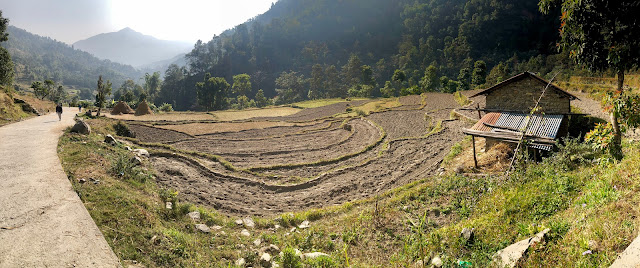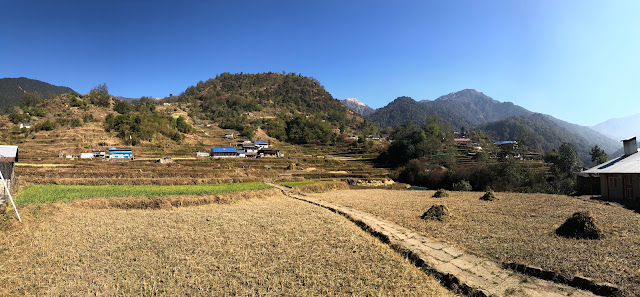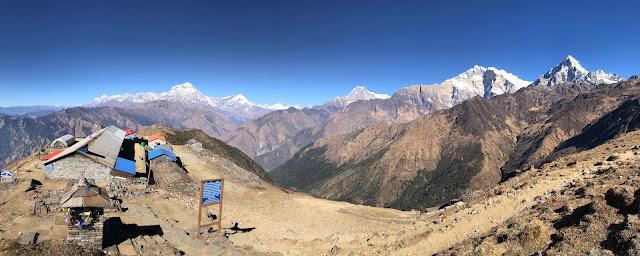Excerpt from the book 'Upanishads' - A new translation by Patrick Olivelle
Brhadaranyaka Upanishad
There is an ancient path
extremely fine and extending far;
It has touched me, I've discovered it!
By it they go up to the heavenly world
released from here,
wise men, knowers of brahman.
In it are the white and the blue, they say,
the orange, green, and red.
By brahman was this path discovered;
By it goes the knower of brahman,
the doer of good, the man of light.
Into blind darkness they enter,
people who worship ignorance;
And into still blinder darkness,
people who delight in learning.
'Joyless' are those regions called,
in blind darkness they are cloaked;
Into them after death they go,
men who are not learned or wise.
If a person truly perceives the self,
knowing 'I am he';
What possibly could he want,
Whom possibly could he love,
that he should worry about his body?
The self has entered this body, this dense jumble.
If a man finds him,
Recognizes him,
He's the maker of everything - the author of all!
The world is his - he's the world itself!
While we are still here, we have come to know it.
If you've not known it, great is your destruction.
Those who have known it - they become immortal.
As of the rest - only suffering awaits them.
When a man clearly sees this self as god,
the lord of what was
and of what will be,
He will not seek to hide from him.
Beneath which the year revolves
together with its days,
That the gods venerate
as the light of lights,
as life immortal.
In which are established
the various groups of five,
together with space;
I take that to be the self -
I who have the knowledge,
I who am immortal,
I take that to be -
the brahman,
the immortal.
The breathing behind breathing, the sight behind sight,
the hearing behind hearing, the thinking behind thinking -
Those who know this perceive brahman,
the first,
the ancient.
With the mind alone must one behold it -
there is here nothing diverse at all!
From death to death he goes, who sees
here any kind of diversity.
As just singular must one behold it -
immeasurable and immovable,
The self is spotless and beyond space,
unborn, immense, immovable.
By knowing that very one a wise Brahmin
should obtain insight for himself.
Let him not ponder over a lot of words;
it just tires the voice!
~~
























